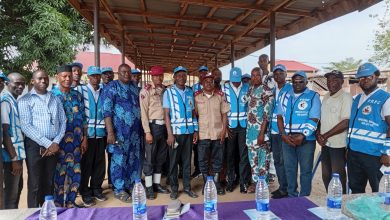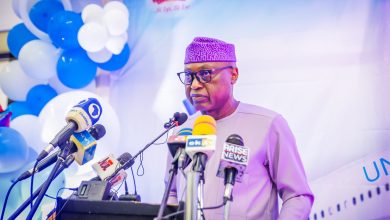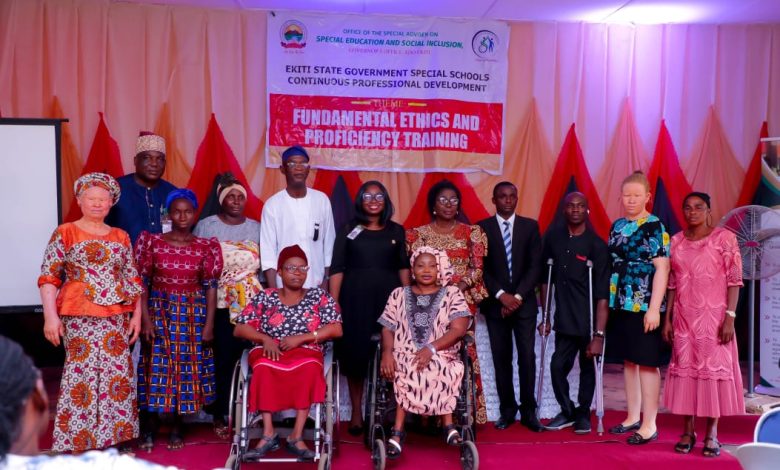
A workshop at the School for the Blind in Ikere-Ekiti has showcased the strides made under the leadership of Governor Biodun Abayomi Oyebanji in promoting disability inclusion across Ekiti State.
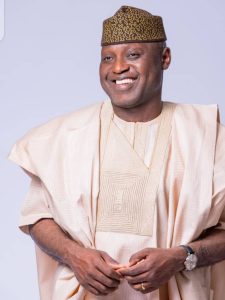
Organized by the Office of the Special Adviser on Special Education and Social Inclusion, the event brought together educators, non-governmental organizations (NGOs), and leaders from all clusters representing the physically disabled, albinos, blind, and deaf from across the state’s 16 local government areas.The leaders were pulled from the 16 Local Government areas of the State with the aim of equipping them for their roles as leaders.
Among the participants are the JONAPWD Excos, cluster heads and local government coordinators for each of the clusters, NGOs working with People with Disabilities and staff of the Special schools and Disability Office
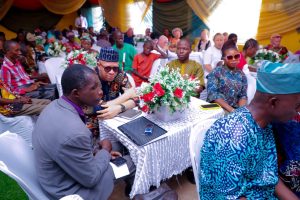
The workshop, themed Fundamental Ethics and Proficiency*, is a critical part of the governor’s broader efforts to provide quality education for people with disabilities (PWDs) through innovative reforms.
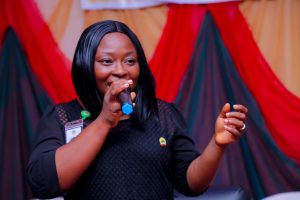
In her welcome address, Mrs. Adetoun Agboola, Special Adviser on Special Education and Social Inclusion, hailed Governor Oyebanji’s landmark initiatives that have revolutionized the state’s special education system. Key among these are the employment of specialized teachers and caregivers, monthly stipends for children with critical disabilities, and free healthcare for PWDs. Mrs. Agboola also commended the governor for appointing PWDs to key positions in governance, including the Commissioner for Youth, and ensuring that classrooms across special schools are renovated and fully equipped. She urged participants to honor the governor’s dedication by committing wholeheartedly to their roles in fostering disability inclusion.
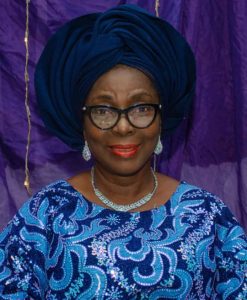
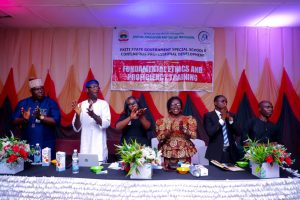 Mrs. Olawunmi Famuyiwa, Director General of Civic Orientation and Citizenship, delved into the topic of “From Ethics to Accountability” , enlightening participants on the moral responsibility of their roles. She emphasized that working with people with disabilities is more than a job—it’s a calling. “You will be called to account for how you’ve served,” she stated, stressing the need for integrity, passion, and dignity in the field. She urged participants to follow Governor Oyebanji’s leadership example, encouraging them to embody the values of responsibility and compassion in their work.
Mrs. Olawunmi Famuyiwa, Director General of Civic Orientation and Citizenship, delved into the topic of “From Ethics to Accountability” , enlightening participants on the moral responsibility of their roles. She emphasized that working with people with disabilities is more than a job—it’s a calling. “You will be called to account for how you’ve served,” she stated, stressing the need for integrity, passion, and dignity in the field. She urged participants to follow Governor Oyebanji’s leadership example, encouraging them to embody the values of responsibility and compassion in their work.

The keynote speaker, Mr. Oke Aruleba, a seasoned lecturer, spoke on the theme “Changing Leadership Narration: From Theory to Action”. He called on educators and NGO leaders to adopt a dynamic mindset, urging them to “learn, unlearn, and relearn” to remain adaptable. He stressed the need for a modern, inclusive approach to education and care, urging participants to view PWDs not as limited, but as individuals full of potential and deserving of empowerment.
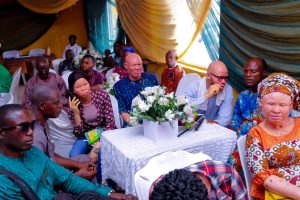
Hon. Biyi Fashona, Technical Advisor for Change Management in the Office of OTSD Ekiti State, emphasized the need for a “mind shift” in special education, advocating for a forward-thinking strategy that moves beyond traditional practices. He also called for the introduction of smart boards in special schools, noting that innovative tools are essential to achieving seamless progress and enhanced learning outcomes for PWDs.
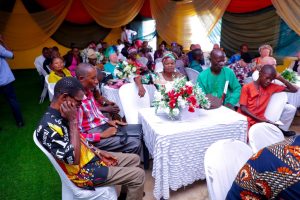
Mr. Olajide Funso founder of DINABI provided practical advice on preparing PWDs for success in exams, interviews, and business ventures. Encouraging participants to think outside the box, he shared insights on how to effectively manage study schedules, avoid procrastination, and approach interviews with confidence and professionalism.
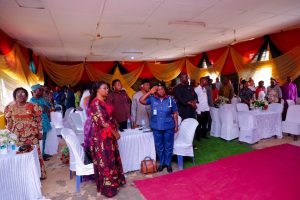
Further emphasizing the governor’s commitment, Mrs. Agboola revealed that a taskforce, in collaboration with the NSCDC, has been established to enforce the government’s directive for parents to stop hiding children with disabilities. This initiative ensures that such children are not deprived of their rights to education and participation in society.
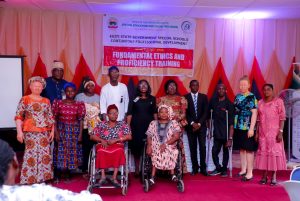
The workshop concluded with a tour of the facilities at the School for the Blind, including the sensory room, kitchen, and the distribution of mobility aids to sight-impaired participants. Transport fares were also provided to participants, marking the state’s unwavering dedication to empowering its disabled community.


